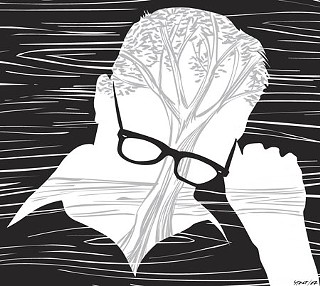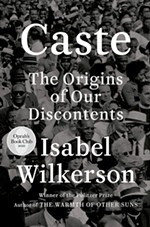Book Review: Readings
edited by Mark Busby and Terrell Dixon
Reviewed by Joe O'Connell, Fri., May 25, 2007
John Graves, Writer
edited by Mark Busby and Terrell Dixon
University of Texas Press, 266 pp., $34.95
I didn't discover Goodbye to a River until the early Nineties, when I chucked my newspaper reporting job and enrolled in the master of fine arts creative-writing program at the school that shall forever be known as Southwest Texas State. Part of my penance for being a poorly read journalist was the requirement that I take 12 hours of undergraduate literature classes. One of the best was Southwest lit with Dickie Heaberlin, a contributor to this thorough tribute to John Graves, who is touted as the Texas version of Hemingway or Thoreau, depending on who is talking.He's also a failed novelist whose lifetime output, almost entirely creative nonfiction, is slim but exceedingly impressive. Heaberlin ordered me to consume Goodbye to a River, which tells of Graves' three-week canoe trip down the Brazos River in the late Fifties just prior to the building of a series of dams that would erase a part of the Texas that was. Part personal journal, part history lesson, part poetry, the book blew me away with its tales of backwoods people, Comanche raids, and the death of a way of life. Larry McMurtry once said the only thing worth writing about is the impending death of something: an era, a generation. That same bittersweet undoing is at the heart of Graves' writing. It's also clear Graves loves Texas as much as he prizes the perfectly written sentence. I was hooked and quickly sought out his other works.
John Graves, Writer aims to explain to citified fans like me a bit more about this quiet man who writes of the land and embodies a kind of Texan quickly slipping away. That man likes to hunt, cherishes the often mean-spirited land that can be oh so cruel. He's crusty with an air of mystery. He's been places, seen things. Editors Mark Busby and Terrell Dixon set out to give us the first close examination of Graves. The result is a mixture of interviews with the tight-lipped author and his friends/protégés, plus academic examinations of his work. The former is often fascinating, particularly when writers chime in on the old master. Art critic and writer Dave Hickey was Graves' student at Texas Christian University and says, "[B]asically what I got from John was a respect for writing about the hard stuff of the world. People are assholes, ideas are smoke, objects are irrevocably there, so let's address them with respect."
The book consistently refers to the two John Graves: the young man who set out as a World War II-era Marine then ended up in Spain on a Hemingway-esque quest for adventures and the man who came home to Fort Worth to care for his ailing father and to write an autobiographical novel titled A Speckled Horse that never quite worked out. Graves here credits that fiction training with shaping his nonfiction successes. "Write about reality, but shape it to give it a meaning that I see in it," he says, echoing Hickey's words about nonfiction trumping the purely imaginary.
Oh, and about the Thoreau comparisons: Graves will clearly have none of that. Thoreau, like many of the modern-day nature writers, had a cause. Graves sees himself as a writer who chooses a subject. "I don't really think of myself as a 'nature writer,'" he says in one of the book's interviews, "but as a writer who tries to put words together as well as he can, regardless of the material involved." In fact, Graves terms much nature writing as "over-exclamatory or sentimental." Nor is he Texas' next J. Frank Dobie, whose meetings with Graves are some of the most interesting in the book. Here's a thought: Perhaps Graves is instead our Lone Star Bob Dylan. Consider it. Both eschew the didactic, cause-driven writing that others would have them pursue. Both are exacting wordsmiths who make it seem too easy. Neither can sing worth a damn. Strike that last part, and let's get back to the subject at hand.
The academic articles included are hit and miss, with some reading too much like extended term papers. Perhaps the most interesting pieces delve into Graves' long relationship with Texas Monthly after being wooed by original editor and fellow Marine William Broyles, who interestingly suggests Goodbye to a River is imbedded with Graves' war experiences much as war lurked in Hemingway's writing. "The brief fleetingness of life, the savoring of it, the love for what small fragile piece of it is yours, that gratitude just for life, for living: the combat veteran has all of that buried in him like shrapnel working its way to the surface," Broyles writes. Graves' collected Texas Monthly essays make up most of the book From a Limestone Ledge, but it's clear Graves never quite fit in with the younger Monthly staff of the Seventies. An essay by Cory Lock suggests Graves' journey down a changing river is echoed by the changes at Texas Monthly from a more rural focus to the metropolitan (much as Texas itself has changed) and resulted in Graves largely falling off the magazine's radar. This is the truth behind both Graves' work and this celebration of it. Some things must be savored before they crumble into stale time.











